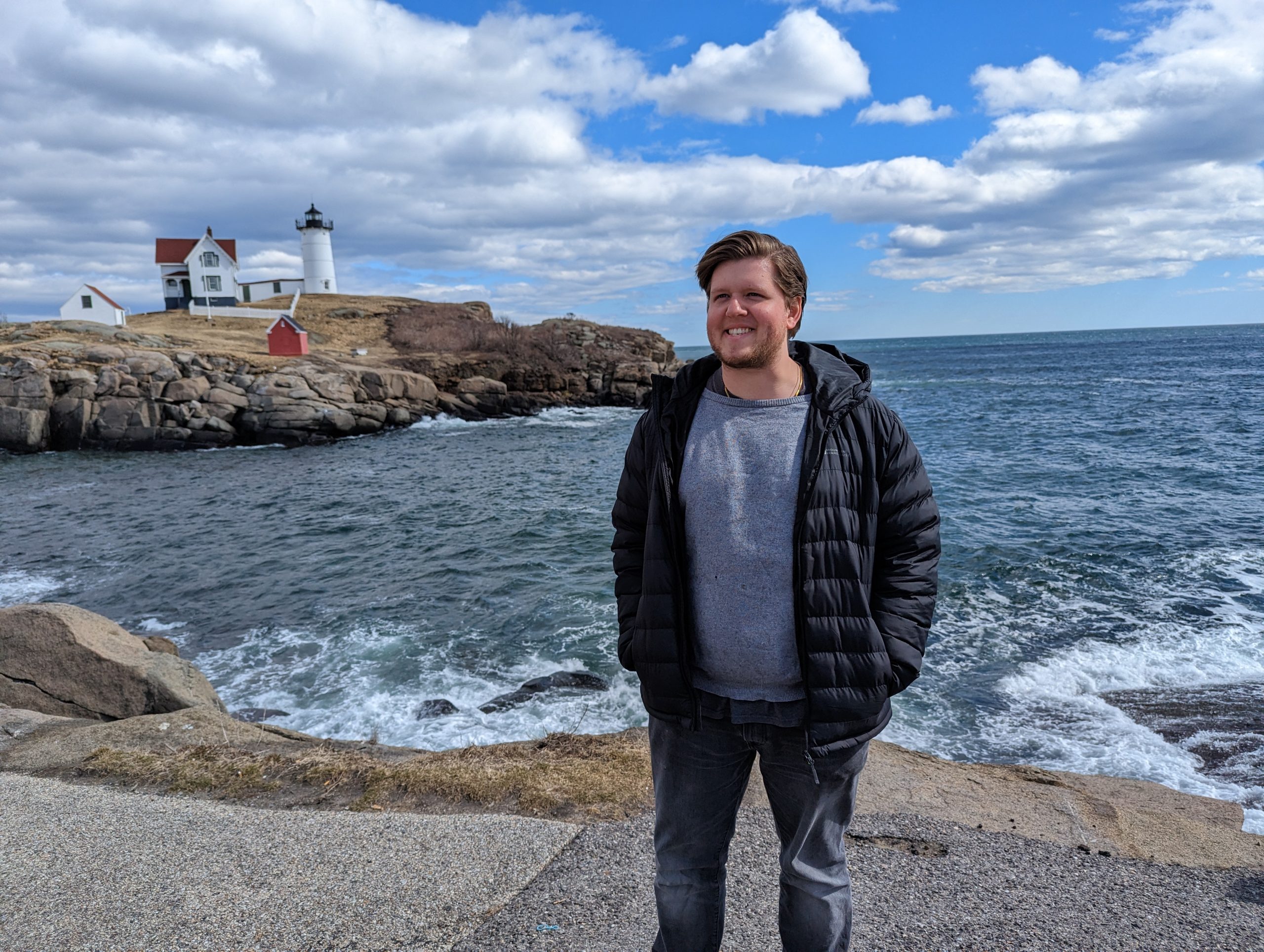
Scholar-Elect Josh Weygant talks about his research plans to merge bioprinting, medicine and engineering.
Maybe in 20 or 30 years we will be able to print an intestine and implant it so people like me can have a full working large intestine
Josh Weygant
“Can we print a functional intestine?” That was Josh Weygant’s first question when he saw how living cells were printed with a 3D printer. It was perhaps an oddly specific question, but Josh has lived all his life with a rare disease which has led to a large part of his intestine being removed when he was a baby and countless hospital visits and admissions.
Josh [2023], who was born in Wiesbaden, Germany was born with Hirschsprung’s disease which causes the nerve cells in the intestine not to fully develop, meaning the body cannot process food which leads to an obstruction of the bowel. The only way to fix it is to cut out the part of the intestine where the nerves are not functioning, given the risk of a stomach rupture with potentially fatal consequences.
As he grew up Josh was in and out of hospital having enemas and various operations until he was a teenager. For a period of time he was given a stoma. But, although he still suffers from discomfort, he has only been in hospital twice since and says he has grown accustomed to this given it is all he has ever known.
His experience drew him to the field of bioprinting and to his PhD, which he will begin in the autumn. For that he will use bioprinting to create organ-on-a-chip systems, microengineered biomimetic systems which reflect the structural and functional characteristics of human tissue and can be used for disease modelling. Josh says: “Most chips are made by hand. I believe we can use bioprinting to print them instead.” He plans to merge bioprinting, medicine and engineering to make more complex models and mimic different organs.
Early studies
At school, Josh says he was not an ambitious student, but he managed to catch up with all the classes he missed due to his hospital visits. When he left, he wasn’t sure what he wanted to do. His mum encouraged him to get a degree so he could get a good job, given money was a big issue when he was growing up in a single-parent household after his parents divorced when he was seven.
At first he did a physics course, but he found he didn’t really have a passion for it. After two years he paused his studies, working in the kitchen of an old people’s and nursing home while he decided what to do. He applied to RheinMain University, a university of applied science, to do physics engineering. The classes were small and there was more contact with industry.
Bioprinting
After his engineering degree, he did a master’s degree at the University of Freiburg with a focus on biomedical engineering while also working as a student research assistant. His thesis was on a multi-cellular drop-on-demand bioprinting approach to monitoring cell to cell interactions and enhancing understanding of vascularisation, the process of growing blood vessels into a tissue to improve oxygen and nutrient supply.
“Bioprinting was fascinating to me and the project was my own baby. It didn’t feel like work. I would go into the lab and print live cells. The experience of creating a living system that changes over time was fascinating,” he says. His paper on that research has just been published.
Towards the end of his master’s Josh presented his research at a conference and tweeted about it. Harvard professor Y. Shrike Zhang liked his tweet and two months later Josh listened to his presentation on bio-printing. “It was mind blowing,” he says.
At Freiburg, there were only a few people focused on bioprinting. Professor Zhang’s lab was totally focused on 3D-Bioprinting and engineering living systems. Josh asked if he could come and work there as a research trainee on graduation, focusing on biofabrication. He arrived in Boston in March 2022 and was working at Brigham and Women’s Hospital until the beginning of 2023. During this time he applied to Cambridge to do his PhD and to Gates Cambridge, having previously read and identified with Gates Cambridge Alumna Tara Westover’s book Educated because he too had a father with mental health issues.
Before he started his PhD, he felt he benefited from industry experience so he took a job as a research engineer at Generate Biomedicines in Boston.
For his PhD Josh is keen to push the boundaries of bioprinting, a relatively new and exciting field, due to his own personal experience. He hopes that one day it will be possible to print a healthy intestine. “Maybe in 20 or 30 years we will be able to print an intestine and implant it so people like me can have a full working large intestine,” he says.












